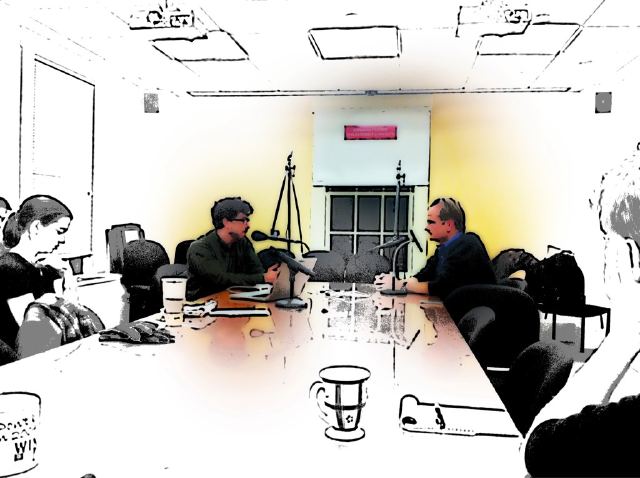Radio Berkman 170: Jonathan & Larry Take On…Corruption!!
December 2nd, 2010

Listen: or download | …also in Ogg
With the November elections behind us here in the US Jonathan Zittrain and Lawrence Lessig take on the issue of money in politics, and investigate how campaign contributions sway candidates for office and influence policy.
In the face of a campaign finance system struggling to find a more ethical framework, Larry suggests a new basis for citizen funded elections, Democracy Vouchers. Jonathan inquires as to what a Democracy Voucher is and just how the heck such a system would work.
What are your thoughts? Any compliments or criticisms? What topic would you like to see Jonathan and Larry take on next month? Share your ideas with us in the comments, or drop us a tweet.
Reference Section
Fix Congress First
Lessig on Neo-Progressives and Tea
CC-licensed Music this Week from Morgantj and Scott Altham.
Photo courtesy of Amar Ashar.
Produced this week by Daniel Dennis Jones and Molly Sauter, with hosts Larry Lessig and Jonathan Zittrain, and help from David Weinberger, Amar Ashar, Jake Shapiro, Lisa Carlivati, and Szelena Gray.
Entry Filed under: audio,radioberkman,Zittrain and Lessig
1 Comment Add your own
Leave a Comment
Some HTML allowed:
<a href="" title=""> <abbr title=""> <acronym title=""> <b> <blockquote cite=""> <cite> <code> <del datetime=""> <em> <i> <q cite=""> <s> <strike> <strong>




1. Max | December 15th, 2010 at 2:09 pm
Another great podcast. If I were in a quibbling mood, I’d probably be inclined to press Jonathan’s devil’s advocacy even further, e.g., by questioning the plausibility of the view that political ideals can be sustainably disentangled from material interests in present-day USA. Your nod to the independence of federal judges provides a good example of how, under certain circumstances, the claim that ideas can trump interests is beyond dispute. However, a closer (and/or a much broader) look at this and other recent federal judicial decisions provides an equally powerful reminder that some of the most widely held and influential yet “interest-decoupled” ideas today are themselves absolutely antithetical to the notion of reducing the significance of money in *any* domain. Here I’m referring to broadly Austrian economic/anarcho-capitalist notions about the subjectivity of individual interests, the inevitability of relative interest-seeking (conflict-inducing) behavior, and the foundational moral/ethical and metaphysical significance of money qua universal accounting mechanism. So long as such ideas are not only widely championed by many who (perhaps coincidentally) profit from such views, but also embraced (perhaps more unreflexively) by many whose material interests are actively harmed thereby, the idea of eliminating or even reducing the significance of spending power asymmetries on political decision making will probably remain a nonstarter.
But since I’m not in a quibbling mood, I’ll put the question in more pragmatic (arguably, the only possible pragmatic) terms: Granting that some subset of US citizens of at least the same or greater size than the group(s) described above would prefer a political spending arrangement like the one you described over the status quo, how do we get to there from here? Which “implementation trajectory” or trajectories do you think are likely to yield the greatest possibility of success?